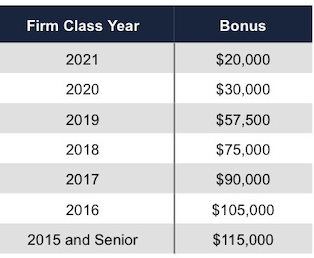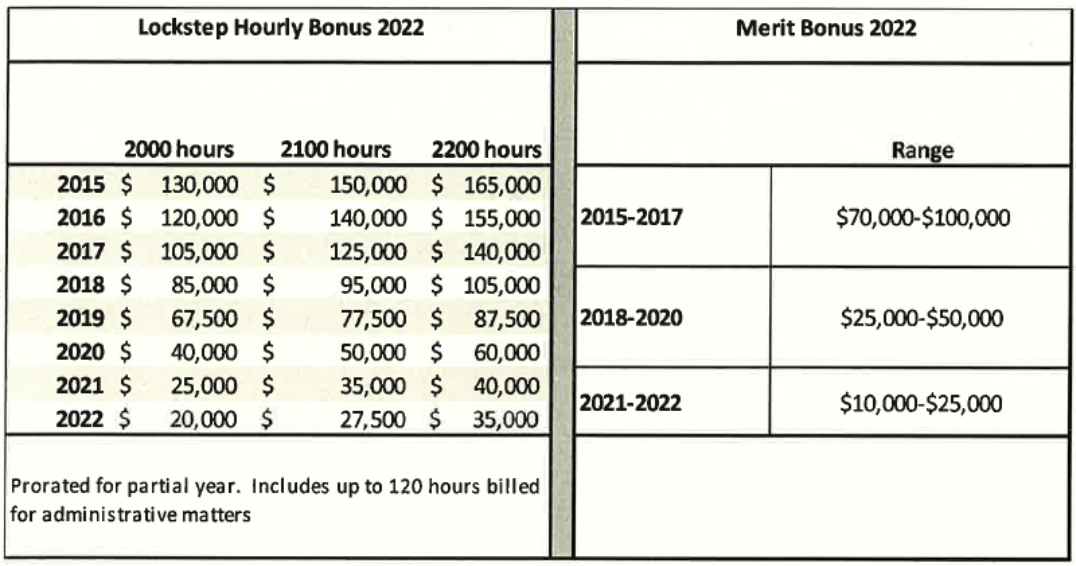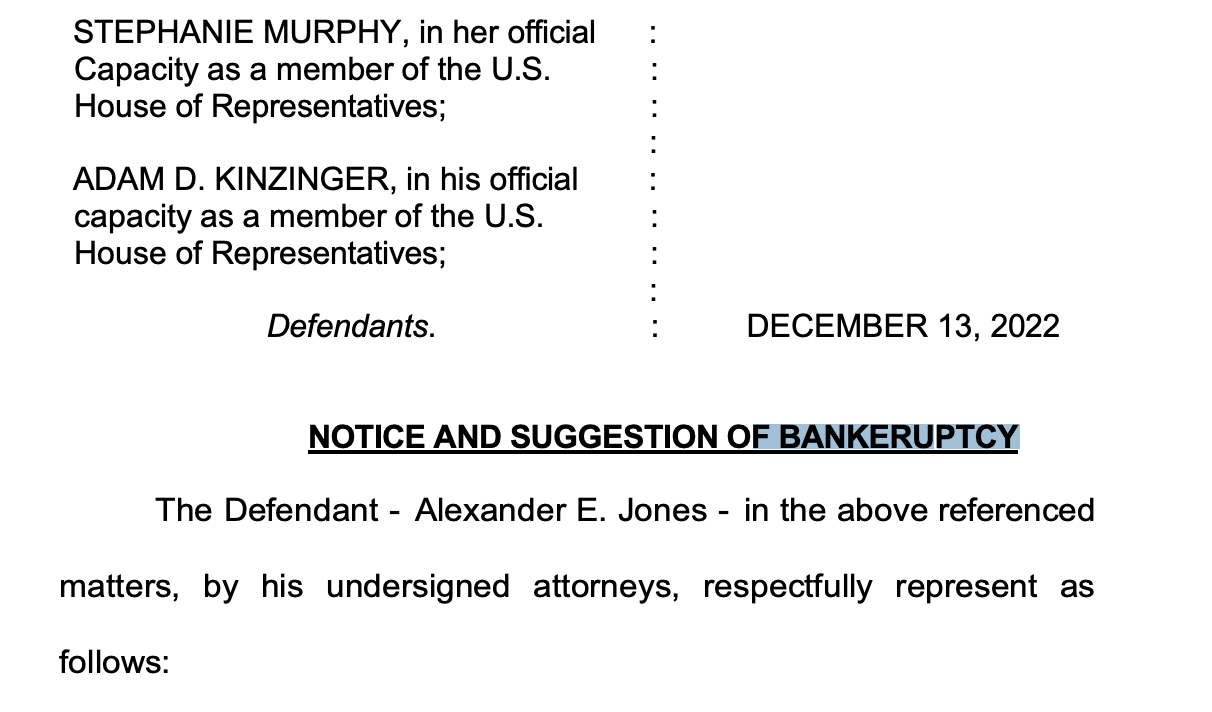As
most
of
us
wind
down
the
year
and
start
preparing
to
face
2023,
law
firm
leadership
teams
are
contemplating
how
to
stay
strong
and
relevant
in
the
coming
uncertain
economic
times.
Past
performance
is
famously
not
a
guarantee
of
future
results,
and
most
businesses
ultimately
fall
flat
or
flame
out
entirely
given
enough
time.
Consider
the
fact
that
of
the
companies
listed
on
the
Fortune
500
in
1955,
at
least
87%
no
longer
exist
today.
The
vast
majority
of
the
world’s
biggest
movers
and
shakers
at
a
time
still
in
living
memory
just
aren’t
around
anymore,
and
the
rate
of
change
and
turnover
in
the
business
world
is
only
going
to
continue
to
increase.
Simply
treading
water
in
the
marketplace
is
hard,
and
treading
water
isn’t
good
enough.
As
William
S.
Burroughs
said,
“When
you
stop
growing,
you
start
dying.”
Part
of
the
problem,
paradoxically,
is
that
a
firm’s
success
can
sow
the
seeds
of
its
own
failure.
As
businesses
succeed,
their
leadership
teams
are
(hopefully)
acutely
aware
of
the
decisions,
strategies,
and
actions
that
got
them
to
where
they
are.
So
when
the
time
comes
to
keep
succeeding
and
keep
growing,
leadership
teams
are
prone
to
looking
at
their
old
strategies
and
simply
double
down
on
the
plan
that’s
already
proven
it
can
work.
It’s
a
totally
understandable
and
rational
thought
process,
but
it’s
also
one
that
can
result
in
ossified
business
plans
that
aren’t
prepared
to
adjust
to
changing
economics,
trends,
and
competition.
How
Success
Works
As
I’ve
mentioned
before,
I’ve
spent
much
of
the
past
two
years
studying
entrepreneurship
through
a
master’s
program
at
the
University
of
Cambridge
Business
School,
with
the
goal
of
better
understanding
how
the
world’s
most
successful
enterprises
find
lasting,
durable
success,
and
how
to
apply
those
lessons
to
running
the
firm
I
help
manage.
As
part
of
my
thesis,
I
interviewed
25
legal
heavyweights,
including
Biglaw
managing
partners,
LegalTech
CEOs,
academics,
and
others
to
learn
how
established
firms
can
use
entrepreneurial
strategies
to
drive
innovation,
rather
than
falling
into
a
trap
of
complacently
rehashing
past
successes.
Going
into
those
interviews,
I
assumed
that
great
entrepreneurship
was
driven
by
wild
ideas
formulated
in
stylish
team
meetings.
Informed
by
the
legends
of
garage-founded
startups
like
Apple
and
Meta,
I
was
imagining
that
great
entrepreneurial
ideas
came
out
of
a
horde
of
young
hoodie-wearing
professionals
sitting
in
a
circle
of
bean
bags,
excitedly
scribbling
out
concepts
on
dry-erase
boards.
It’s
an
alluring,
dynamic
concept
to
build
a
company
around,
one
centered
on
rogue
geniuses
reshaping
the
world
one
algorithm
at
a
time.
Reality,
as
always,
turned
out
to
be
a
lot
less
sexy.
Successful
entrepreneurship
isn’t
a
series
of
blazing
bright
ideas
implemented
cleanly.
It’s
a
process,
and
often
it’s
a
grind.
It’s
all
about
identifying
looming
challenges
and
opportunities,
brainstorming
solutions,
and
then
designing
controlled,
measurable
ways
to
experiment
with
those
solutions.
Those
experiments
will
often
fail.
If
you’re
lucky,
they’ll
fail
quickly
and
cheaply.
Don’t
count
on
being
lucky.
Once
the
experiment
is
over,
it’s
all
about
figuring
out
what
worked,
what
didn’t,
and
what
deserves
further
testing.
Then
it’s
back
to
experimenting,
and
analyzing,
and
experimenting
again.
The
cycle
never
ends,
the
work
is
never
done.
Today’s
work
is
all
about
making
tomorrow’s
work
hopefully
better.
There
are
a
number
of
formulations
and
names
for
this
process.
I’m
partial
to
Eric
Ries’
book
“The
Lean
Startup,”
where
he
calls
it
the
Build-Measure-Learn
cycle,
but
you
may
have
read
about
or
experienced
the
iterative
feedback
loop
concept
in
any
number
of
contexts.
It’s
increasingly
endemic
in
the
broader
business
world,
even
if
adoption
in
the
legal
space
remains,
as
usual,
lagging
behind.
It’s
a
proven
model
for
innovation
and
optimization,
but
more
importantly
it’s
a
way
of
thinking
that
can
be
taught,
one
that
can
become
baked
into
a
business’
systems
and
culture.
Most
law
firms
don’t
employ
eccentric
rogue
geniuses
who
can
reshape
an
entire
industry
with
their
ideas,
but
all
law
firms
can
work
positively
toward
creating
a
culture
of
experimentation
and
iterative
refinement.
So
Why
Do
So
Few
Firms
Do
It?
Many
of
the
problems
with
law
firms
come
down
to
the
fact
they’re
populated
by
lawyers.
The
challenge
of
developing
an
entrepreneurial
culture
in
a
law
firm
is
no
different.
The
Build-Measure-Learn
cycle
is
all
about
constant
change,
and
lawyers
tend
to
resist
change.
Trevor
Faure’s
excellent
resource
Smarter
Law
goes
into
depth
on
this
topic,
and
I
won’t
quote
here
his
entire
“Maleficent
Seven”
reasons
that
lawyers
resist
change,
but
given
our
profession
is
one
that
is
based
on
precedent,
insulated
from
the
full
weight
of
the
competitive
marketplace,
and
that
has
historically
done
well
enough
by
being
reactive
rather
than
proactive,
it’s
not
that
surprising
that
many
law
firms
are
allergic
to
experimentation,
especially
given
the
high
likelihood
that
some
of
those
experiments
will
abjectly
fail.
But
our
industry’s
historically
reactive
mindset
doesn’t
mean
the
future
has
to
look
the
same.
Those
firms
looking
to
develop
that
entrepreneurial
edge
have
some
strategies
at
their
disposal.
How
To
Overcome
Being
Lawyers
First,
firm
leadership
needs
to
constantly
communicate
that
experimentation
and
change
are
crucial
to
the
firm’s
continued
success.
Team
meetings
need
to
regularly
include
surveys
of
new
economic
trends,
market
competitors,
and
potential
disruptions
and
opportunities.
Leadership
should
make
a
point
of
considering
structured
experiments
proposed
by
anyone
in
the
firm,
from
the
managing
partner
to
the
mail
room
attendant.
And
leadership
needs
to
commit
to
the
iterative
learning
model,
normalizing
the
failure
inherent
in
that
process.
Experiments
that
don’t
pan
out
as
expected
still
teach
us
something,
informing
the
next
round
of
experiments
that
hopefully
end
more
productively.
Second,
firm
leaders
should
implement
programs
designed
to
reinforce
the
feedback
loop,
rather
than
letting
the
experiment
die
on
the
vine.
Next
year,
for
example,
Fennemore
is
launching
an
R&D
incubator
known
as
Fennemore
Labs
that
provides
a
formal
mechanism
for
partners,
associates,
and
other
legal
professionals
to
systematically
identify
and
pursue
novel
solutions
that
will
position
the
firm
for
success.
The
ideas
will
be
tested,
and
most
will
fail.
But
based
on
evaluation
and
measurement,
the
Fennemore
Labs
concept
ensures
that
ideas
that
didn’t
work
but
still
have
potential
will
be
iterated
and
tried
again.
We’re
committing
resources
and
time
to
the
basic
concept
of
experimentation,
learning,
and
growth.
Lastly,
firm
leaders
must
foster
an
environment
of
psychological
safety
for
the
above
processes
to
thrive.
Lawyers
are
trained
to
seek
and
destroy
ideas.
We’re
taught
from
our
first
days
in
law
school
how
to
prove
our
value
by
dismantling
others’
thoughts.
That
may
arguably
work
in
some
legal
contexts,
but
it
doesn’t
work
when
ideating
and
working
with
coworkers.
When
it
comes
to
innovation,
leaders
must
learn
to
scale
down
how
much
we
praise
successful
results
and
begin
praising
successes
in
the
process.
It’s
only
by
creating
a
positive,
collaborative
environment
where
constructive
failure
is
welcomed
that
we’ll
be
able
to
break
ourselves
of
those
bad
law
school
habits
and
open
up
the
floodgates
of
creativity.
Past
performance
isn’t
an
indicator
of
future
results,
but
today’s
performance
absolutely
is.
If
you
want
your
firm
to
have
a
prosperous
2023
and
beyond,
embrace
the
entrepreneurial
model.
It’s
scary,
disruptive,
and
often
doesn’t
work
out
as
expected.
And
that’s
exactly
why
your
firm
needs
to
do
it.
 James
James
Goodnow is the
CEO
and
managing
partner
of NLJ
250
firm Fennemore
Craig. At
age
36,
he
became
the
youngest
known
chief
executive
of
a
large
law
firm
in
the
U.S.
He
holds
his
JD
from
Harvard
Law
School
and
dual
business
management
certificates
from
MIT.
He’s
currently
attending
the
Cambridge
University
Judge
Business
School
(U.K.),
where
he’s
working
toward
a
master’s
degree
in
entrepreneurship.
James
is
the
co-author
of Motivating
Millennials,
which
hit
number
one
on
Amazon
in
the
business
management
new
release
category.
As
a
practitioner,
he
and
his
colleagues
created
and
run
a
tech-based plaintiffs’
practice and
business
model.
You
can
connect
with
James
on
Twitter
(@JamesGoodnow)
or
by
emailing
him
at James@JamesGoodnow.com.












 Jordan
Jordan

 Chris
Chris









